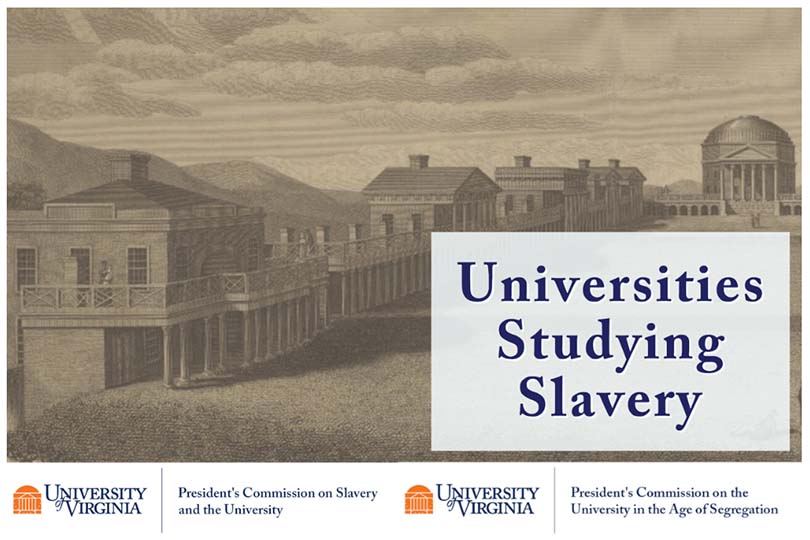Slavery, Reparations and Education: African Nova Scotia, Canada and Beyond
Universities Studying Slavery 2023 Fall Symposium, October 18th – 21st, 2023, Dalhousie University and University of King’s College, Halifax, Nova Scotia, in partnership with the Black Cultural Centre of Nova Scotia, Canada
As the first Canadian universities to join Universities Studying Slavery (USS), Dalhousie University and University of King’s College, acting together and in partnership with the Black Cultural Centre of Nova Scotia are proud to be co-sponsors of the Fall 2023 USS Conference, Slavery, Reparations and Education: African Nova Scotia, Canada and Beyond. USS is a multi-institutional collaborative effort working to address historical and contemporary issues that deal with race and inequality in higher education and university communities, and the complicated legacies of slavery. This will be the first USS conference held outside of the United States and follows directly from the work both Dalhousie University and the University of King’s College undertook to investigate their historical links to slavery. The institutions’ findings are publicly available as Report on Lord Dalhousie’s History on Slavery and Race and King’s and Slavery: A Scholarly Inquiry.
The conference presents the exciting opportunity to explore the history(ies), impact(s) and legacy(ies) of slavery in Nova Scotia, Canada and the movement for reparations within the context of the Americas and the Black Atlantic. The long history of Black people in Canada has been profoundly shaped by slavery. Moreover, the special emphasis on slavery in Nova Scotia highlights not only the beginnings and roots of the Black presence and the institution and practice of slavery in Canada but also the initiation and articulation of the process leading to the emergence of African Nova Scotians as a distinct people cum quasi-nation. Thus, in many ways, the African Nova Scotian experience represents a different narrative from those elaborated in previous USS conferences: one grounded in the local reality of Nova Scotia and interwoven with national, continental and global themes.
The conference encourages collaboration from scholars and activists—from the academy and the community—to promote dialogue, critical reflection, and a better understanding of the roles and legacies of slavery in the lives of people of African descent and their responses to addressing those roles and legacies, especially within Nova Scotia and Canada. Among the pressing contemporary issues are reparations, reparative justice, the African Nova Scotian struggle for self-determination, anti-Black racism, discrimination and inequity within academe, and the politics of renaming and re-imagining public places and spaces. A key focus of the conference will be slavery’s legacy in the institutions of higher education and how the history of enslavement is manifested in the development of universities in Canada and the United States. The conference will provide a venue for these important conversations, discussions, and debates.
The conference will be held over three days (Oct 18-21, 2023), with one day fully dedicated to the African Nova Scotian experience. The rest of the conference will explore and interweave the wider and intersecting themes and discussions. Conference organizers welcome papers from a wide array of disciplines using a variety of theoretical frameworks and methodologies. Disciplinary contributions are encouraged from history, anthropology, archeology, criminology, sociology, literature, music, political science, among others. We also encourage and welcome input and abstracts from activists, community practitioners, and community members. Practitioners in cultural history institutions and the visual and performing arts are also encouraged to submit proposals, as non-traditional and/or alternative forms of presenting research, e.g. in videos, visual art, or performances, will be supported. In addition to individual paper proposals, participants are encouraged to submit proposals for panels. Panels can be disciplinary, multi-disciplinary, or consist of academics and non-academics.
Panels may consist of three to four papers/presentations addressing a coherent theme or issue. The organizing committee reserves the right to make changes in the overall configuration of panels. Please email an abstract of proposed papers/presentations/panels (limit 500 words) and CV to USS2023HalifaxConference@dal.ca. The committee will consider submissions until July 7, 2023. The conference registration will open on June 30, 2023.
Proposed Conference themes, among others:
- Education and Slavery
- Woman and Slavery
- Punishment Regimes in Atlantic Slavery
- The Enslavement of African Nova Scotians and its Legacy of Systemic Racism: Impacts on Health, Environment, Justice, Education, Employment, etc.
- Questions of Emancipation throughout the Americas
- Black Abolitionists
- Slavery and the Law
- The Black Refugees and the War of 1812
- West India Trade and the Nova Scotian Economy
Download the Call for Papers [PDF]
The conference will offer a variety of registration options including student and community seats at no cost, scholar and corporate rates. Sponsorships are also available.
Sign up for conference updates
